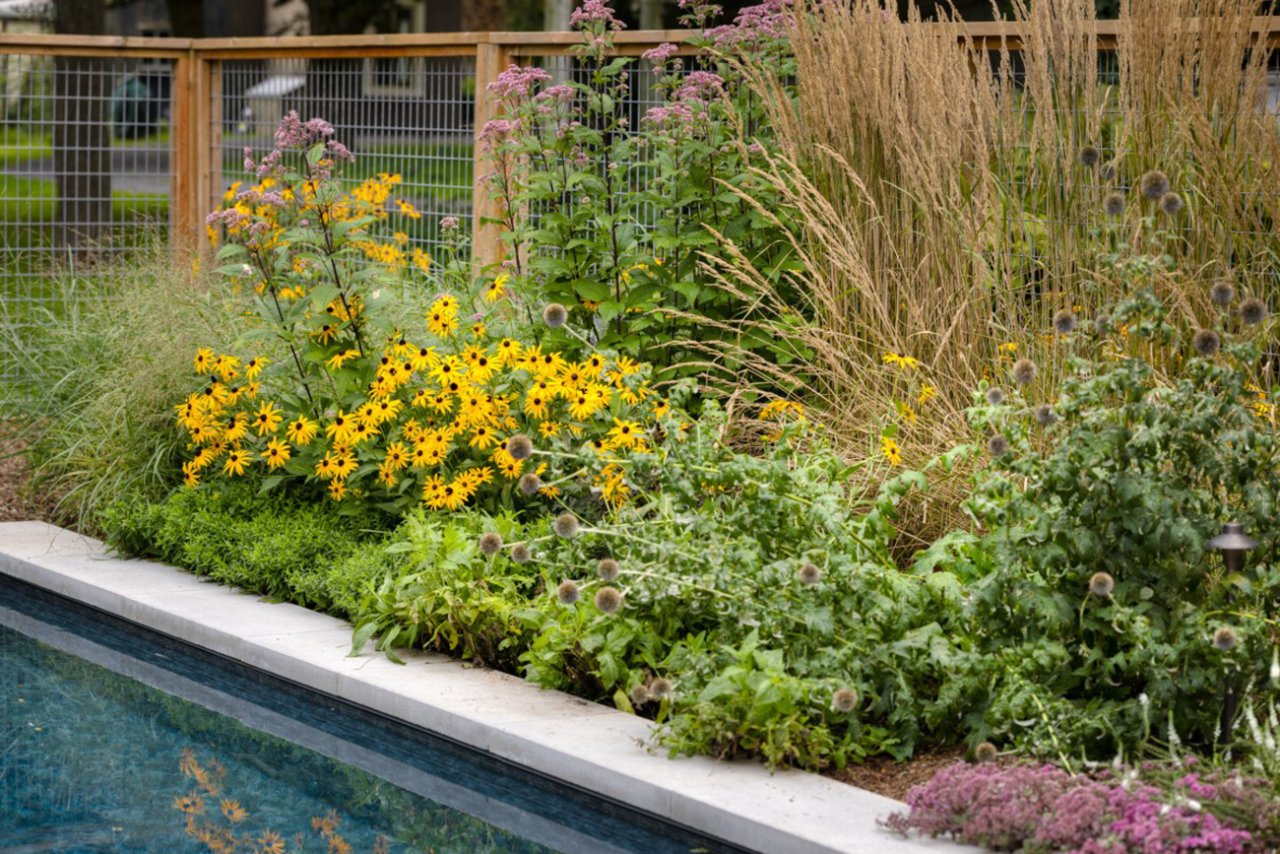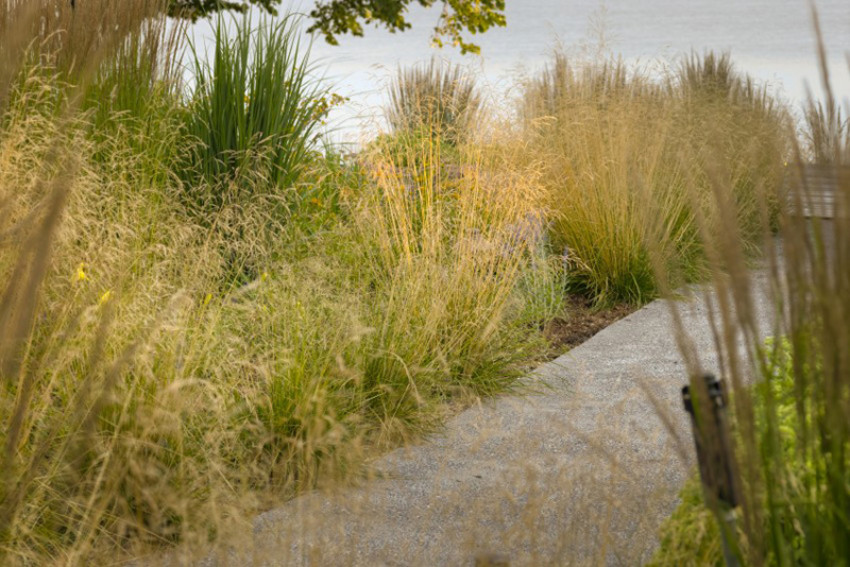Blog
The Luxury of Low Maintenance Gardens

In the hustle and bustle of modern life, where time is a precious resource and opportunities to stop and smell the flowers are rare, the appeal for low-maintenance gardens has grown exponentially. The luxury of a garden that demands minimal upkeep is not just a convenience but a lifestyle choice that allows individuals to indulge in the beauty of nature without the constant struggle against time-consuming maintenance tasks. Additionally low maintenance gardens benefit both you and the environment that surrounds your home.
Here are some benefits of low-maintenance gardens:
Time Saving
Naturalized gardens require minimal care and attention. This allows you to spend less time on routine tasks such as weeding, pruning, and watering, freeing up time for other activities.
Environmentally Beneficial
Naturalized gardens prioritize native and drought-resistant plants that are adapted to the local ecosystem, reducing the need for excessive water and chemical inputs. They also host an array of birds, pollinators, and beneficial insects, fostering a harmonious and biodiverse environment.
Cost Efficiency
Naturalized gardens can be cost-effective over the long term. Since they require less water and fertilizer, you will save money on utility bills and gardening expenses.
Year-Round Appeal
Naturalized gardens can provide visual interest throughout the year, ensuring that the garden looks attractive and maintains its naturalistic charm in spring, summer, fall, and winter.
Versatility
Naturalized gardens can be adapted to various styles, sizes, and locations. Whether you have a small urban space or a larger property, there are low-maintenance design options that suit different preferences and needs while maintaining a naturalistic allure.
Stress Reduction
The reduced demand for ongoing maintenance can contribute to a more relaxed and enjoyable outdoor space. You can spend more time enjoying their gardens rather than constantly working on them, fostering a naturalistic connection with the surroundings.

Here are some key features to a low maintenance garden:
The Power of Perennials
Perennials especially native plants are the backbone of low-maintenance gardens, returning year after year without the need for replanting, in contrast to their annual counterparts. Native perennials, in particular, emerge as champions of low-maintenance gardening, seamlessly adapting to local soil and climate conditions.
Mulch Mulch Mulch:
Mulching around native perennial beds serves multiple purposes. It helps retain soil moisture, reducing the frequency of watering. Additionally, it suppresses weed growth, cutting down on the time spent weeding. By mimicking natural ecosystems, mulch contributes to the overall health of your garden, requiring less intervention.
Attracting Beneficial Insects:
Establishing an environmentally beneficial garden through the utilization of organic mulch and a diverse array of native plants helps create a habitat for beneficial insects. This approach offers shelter, moisture, and protection for various beneficial insects, including spiders, ladybugs, and bees. Native plants within this garden serve as essential food sources, contributing to the development of a balanced ecosystem that naturally regulates pest populations, reducing the need for reactive pest control measures like pesticides, ultimately saving time, money and effort.
Keep it Natural
Naturalized gardens, as their name suggests, thrive with minimal intervention. Allowing native plants to grow in their natural forms enables these gardens to be self-sustaining, creating vibrant ecosystems that require minimal human attention. This philosophy of coexistence with nature provides a low-maintenance, resilient, and aesthetically pleasing outdoor space to enjoy.
Sustainable Hardscaping: Permeable Paving and Rain Gardens:
Permeable paving materials allow rainwater to enter the soil, reducing the need for manual watering. This not only conserves water but also promotes healthier soil and plant growth. Rain gardens serve as both functional and aesthetically pleasing features, effectively managing stormwater runoff while adding beauty to your landscape.
In conclusion, the exceptional appeal of low-maintenance gardens lies in their ability to sustain themselves while fostering a healthy and harmonious environment. These gardens, with their emphasis on native plants, water conservation, and eco-friendly practices, become vibrant ecosystems that benefit both you and the broader environment surrounding your home. By embracing the principles of self-sufficiency and ecological balance, low-maintenance gardens exemplify a sustainable and mindful approach to gardening, offering not only aesthetic beauty but also a profound connection to the natural world.
Posted: January 24th, 2024
View More Posts